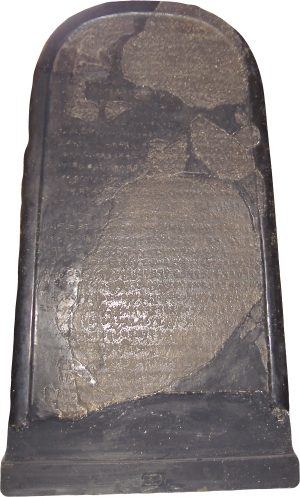Heading (1:1)
Nineveh (1:1). After this heading, the name of the Assyrian capital does not reappear until 2:8. In 1:8, 11; 2:1, the Hebrew has feminine grammatical forms (“her” and “you”), which refer to Nineveh (the NIV supplies the name). Where the city is meant, it stands for the king in particular, and for all the inhabitants.
Nahum (1:1). The name means “comforted,” but it may be a shortened form of Nehemiah, “The Lord has comforted,” or Naham-el, “God has comforted.”
Elkoshite (1:1). Like Amos and Micah, Nahum is identified by his hometown, not by his father’s name. Several locations have been proposed for Elkosh, not mentioned anywhere else in Scripture. None of the suggestions is wholly convincing, but Nahum probably did live in Judah.
